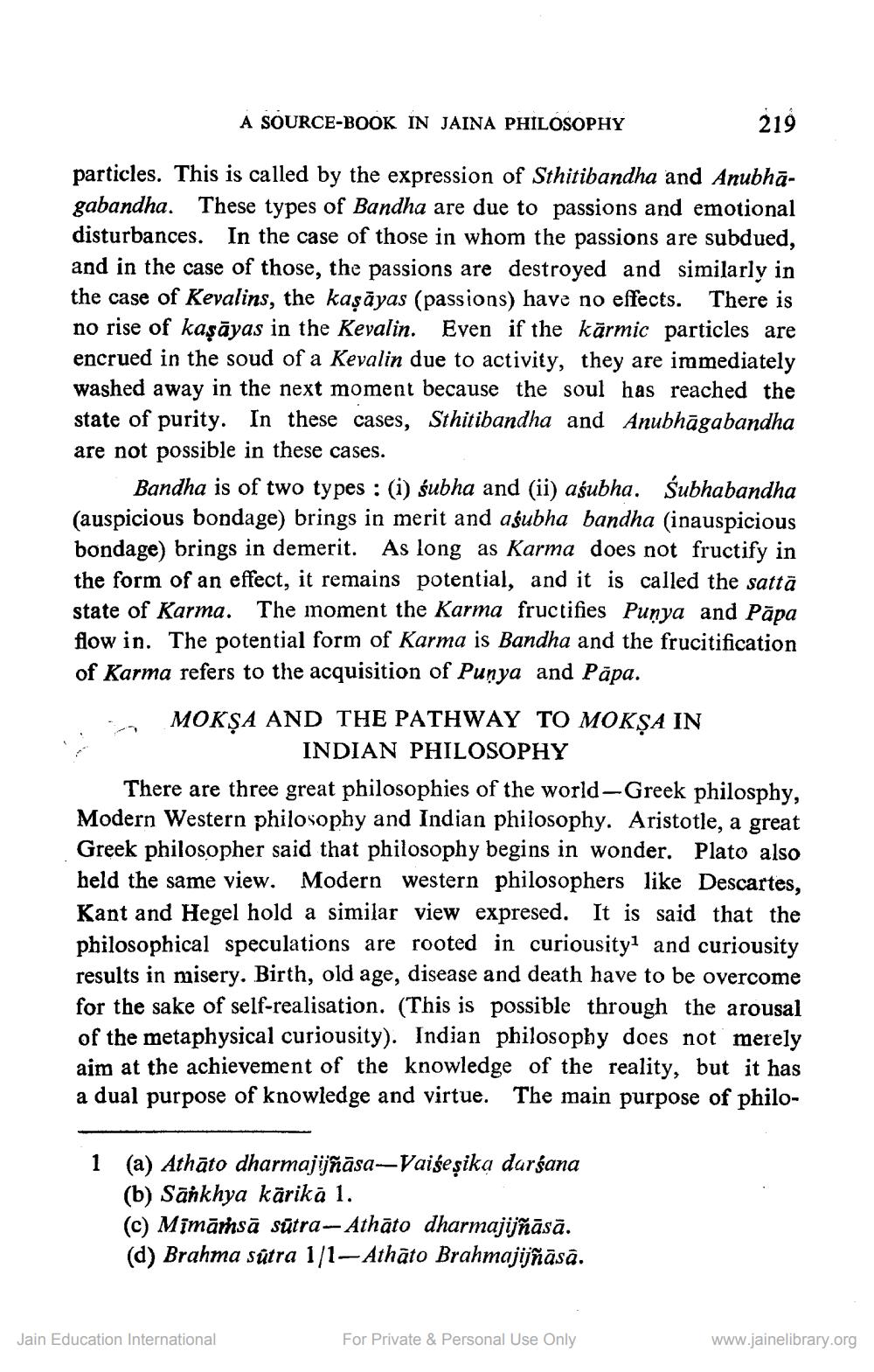________________
219
particles. This is called by the expression of Sthitibandha and Anubhāgabandha. These types of Bandha are due to passions and emotional disturbances. In the case of those in whom the passions are subdued, and in the case of those, the passions are destroyed and similarly in the case of Kevalins, the kaṣāyas (passions) have no effects. There is no rise of kaṣāyas in the Kevalin. Even if the karmic particles are encrued in the soud of a Kevalin due to activity, they are immediately washed away in the next moment because the soul has reached the state of purity. In these cases, Sthitibandha and Anubhāgabandha are not possible in these cases.
A SOURCE-BOOK IN JAINA PHILOSOPHY
Bandha is of two types: (i) subha and (ii) aśubha. Śubhabandha (auspicious bondage) brings in merit and aśubha bandha (inauspicious bondage) brings in demerit. As long as Karma does not fructify in the form of an effect, it remains potential, and it is called the sattā state of Karma. The moment the Karma fructifies Punya and Papa flow in. The potential form of Karma is Bandha and the frucitification of Karma refers to the acquisition of Punya and Papa.
MOKṢA AND THE PATHWAY TO MOKṢA IN INDIAN PHILOSOPHY
There are three great philosophies of the world-Greek philosphy, Modern Western philosophy and Indian philosophy. Aristotle, a great Greek philosopher said that philosophy begins in wonder. Plato also held the same view. Modern western philosophers like Descartes, Kant and Hegel hold a similar view expresed. It is said that the philosophical speculations are rooted in curiousity1 and curiousity results in misery. Birth, old age, disease and death have to be overcome for the sake of self-realisation. (This is possible through the arousal of the metaphysical curiousity). Indian philosophy does not merely aim at the achievement of the knowledge of the reality, but it has a dual purpose of knowledge and virtue. The main purpose of philo
1 (a) Athāto dharmajijñāsa–Vaiśeṣika darśana (b) Sankhya kārikā 1.
(c) Mīmāṁsā sūtra-Athāto dharmajijñāsā. (d) Brahma sutra 1/1-Athāto Brahmajijñāsā.
Jain Education International
For Private & Personal Use Only
www.jainelibrary.org




